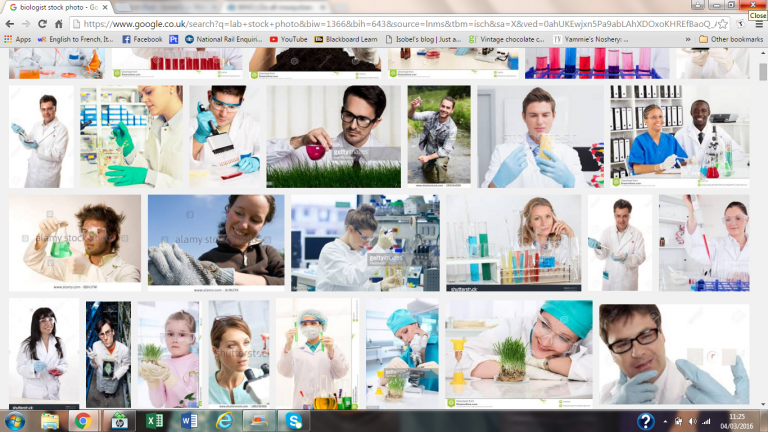Nostalgia seems to be the key word of this year. I swear that only yesterday I was taking my seat in a giant, air-conditioning-lacking lecture theatre in the Sir Alexander Fleming building to have my first ever lecture at Imperial College. Then I remember that was nearly two and a half years ago and I cry a little inside remembering how quickly time flies, how many amazing times (and sad ones) I’ve had since then and also how I’m going to 21 soon which tips me definitively into the ‘twenties’ bracket. Man I feel old. Third year is more than half way done now and I’ve just begun the final course of the year. I love it already and I am so excited for the next few weeks! You can click on my tags on the right hand side to see what first and second year biology look like but what is third year all about and what am I getting up to at the moment?

You get free reign to study what you want to study
With third year comes great responsibility – picking all 3 lecture courses that you’ll study in autumn term and the first half of spring. You’ll make your choices towards the end of second year and there are many to pick from. There are no obligatory lecture courses (unless you do a literature based dissertation but I’ll get to that in a minute) so you can specialise a bit more this year. For budding ecologists, there’s an opportunity to do field work in South Africa, spending two weeks in the field doing fun ecology things like throwing quadrats and learning the names of insects (I didn’t go but everyone I know who did said it was amazing and they had some awesome experiences). If you’re more in to the ‘buzz topics’ there’s options to study stem cells, neuroscience and regeneration or if you love to code, model and do tricky maths then bioinformatics and epidemiology may be more your style. There’s something for everyone and it’s been great to study in depth topics that I’m really interested in this year.
You do your final year project
This takes up the last 4 weeks of spring term and the whole of summer term and there are literally over 300 choices for titles. You have to go through this list, picking 8 top choices and ranking them in order of preference. Some people will do lab projects, spending their time working under a supervisor to conduct experiments, gather data and then do a big write up. Others (me included) will do a literature project, still working with a supervisor but doing more independent research through scientific journals and eventually writing a big paper summarising what we’ve discovered. The diversity of projects is immense – you could end up measuring snails at London Zoo, using live imaging to see how plant roots cope with growing in small space or if you’re me, researching exactly how a mosquito’s immune system works to eliminate the malaria parasite from their system. If you do a literature project….
You get the opportunity to do a short science communication course
Since the literature projects take a slightly shorter time to complete due to the fact that we’re not in the lab gathering data before we can start writing, we take a four week science communication course before the Easter break. This includes talks from various professionals in the industry, from videographers to teachers to the chief executive of the Science Media Centre! We also do some science writing, blogging, podcast-making, book groups, basically all kinds of different things to introduce us to the concept of science communication and to get a feel for what we enjoy. It’s only been a week but I honestly cannot commend this course highly enough, I love it so much and it’s really affirmed for me what I want to go in to in the future.
You have to find something to do next year
Word of advice: don’t ask anyone in their final year what their plans are for next year. Some will tell you about the banking job of the PhD they’ve already been offered but most will cry a little, stare blankly at you or run in to the distance. It’s a stressful time of year for those of us who are moving on to new places, still waiting to hear about graduate schemes or waiting to interview for postgraduate studies, but moving on is inevitable and so I’ll end this post by wishing the best of luck to all my fellow biologists. We’re nearly there, and I hope the remainder of year 3 is amazing for you.



